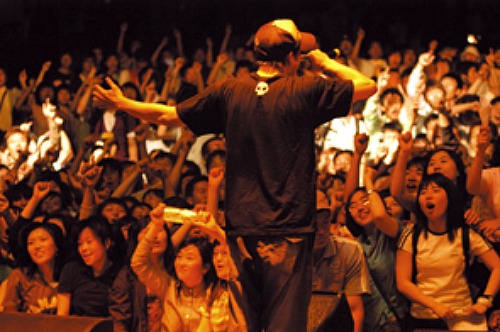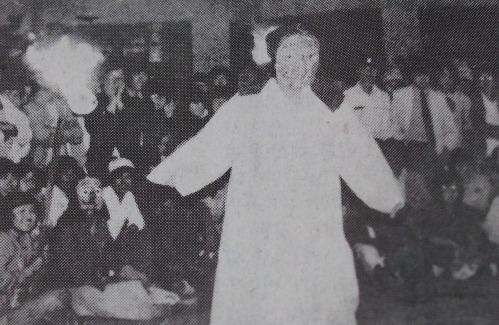From 'Yong-Yeon-Je' which started in 1965, until now 'Ara Dae-Dong-Je'
University festivals change along with the flow of time.

During the university festival season, May, Jeju-NU is having its 59th birthday. From May 24th, bannered as, "‘Never Ending’ Ara Dae-Dong-Je, May Festival”, there will be a three-day festival.
The festival’s name has changed from time to time, and its form and atmosphere are different now from what they were before. What was it like in the past? Let’s tip toe into Jeju-NU Festival’s footsteps.
1960-1970 : The local community and JNU together held “Yong-Yeon-Je”.
Back at that time, Jeju National University’s Campus was located at the current site of JNU Middle and High Schools. Yong-Yeon-Je is the event that both students and inhabitants participated.
The University Festival Events accommodated the Conference of middle and high school students in a program called "Talks with Teens," which focused on listening to young students' problems around their school life and homework. This presented a new face of JNU to the community. Also at that time, JNU did not have enough places except for the main hall. So music events were held in off-campus cafes, and seminars were in a wedding hall. A famous singers’ performance was a highlight of Festival Eve. A description of the Festival Eve from that time: "Yong-Yeon-Ya-Beom, people carry a torch holding lantern from Sam-Seong-Hyul to Market Road. The torch bearers run toward the main road and went to the downtown of Jeju.
1980 -1990 : Desire of Democracy 'Ara Chuk-Jeon," "Ara Dae-Dong-Je".
From the 1980's to the 1990's, the country was eager for democracy and the event’s name went from 'Ara Chuk-Jeon" to "Ara Dae-Dong-Je". In 1979, the 16th "Yong Yeon Je" was held and was the last festival given that name. Our campus was relocated in Ara-dong and the festival's name was changed to "Ara Chuk-Jeon." It was based on the idea that Ara Campus’ location should be reflected in the festival's name. In 1991, the school's 39th anniversary, the festival's name was changed to “Ara Dae-Dong-Je”.
In the restlessness of that time, was the romance of a festival possible? In 1980 the 17th Ara Chuk-Jeon(the 29th anniversary festival) was cancelled due to the Gwang-Joo-Hang-Jaeng, which all the universities in Korea were closed. In 1985 the festival were cancelled again.
In 1991 and 1992 Festival was held also to promote a democratic culture, which had been rebuilt by young activist under pressure. The festival reflected the times which were ruled by political ideology. “National Reunification Marathon and Wheel Rounding”, “Opposing the USA”etc.

2000 – 2011: The changing University Festival
Coming to the year 2000 and beyond, politics disappeared to a large extent from the festival. It became more a means to promote the culture of the community.
In the 1960’s and 1970’s, there were a campfires, folk dances and Makgulri on Festival Eve. In 2000's, there were events for television comedy, public radio broadcasts, and a Rock Festival. Since then, celebrities' performances became a core part of the festivals. It was felt that people put too much emphasis on seeing celebrities in person. Also during the festival period, there were departmental educational exhibitions. “College sports competition” became a tradition of the second term’s major events. In 2000, there were a Studying-Abroad Exhibition and a New-Commerce&Venture Exhibition. There were also events held such as Starcraft War, Make-up & Nail-Arts, Sex-Education with Boyfriend, and campus couple contest. From 2008 onwards, there were recruitment show that involvd companies in Jeju, and job exhibitions. There were also lectures and consultation available to help with finding a job, with changing jobs, and with other job-related matters.
The center of festival is us
From 1960's to 2000's, retrace the course of the university festivals, there is a voice that we should encourage participation.
We are not guests of 'Dea-Dong-Je'. We are center of the festival which reflect university campus culture. we should enjoy and develop 'Dea-Dong-Je'.

